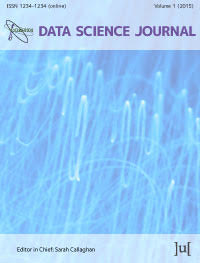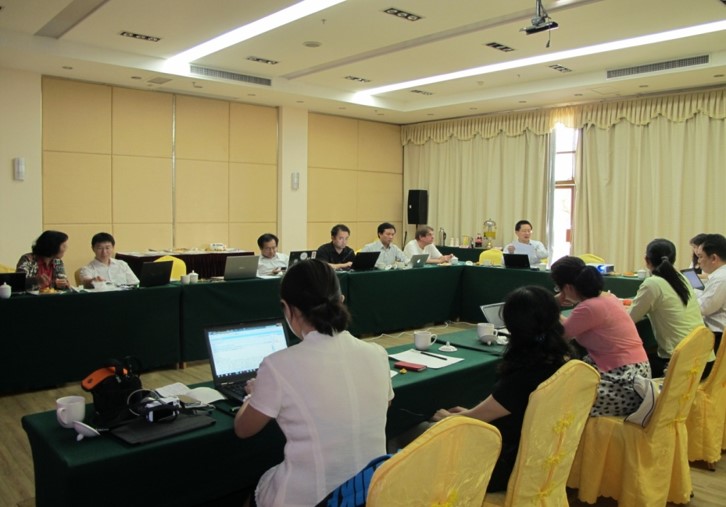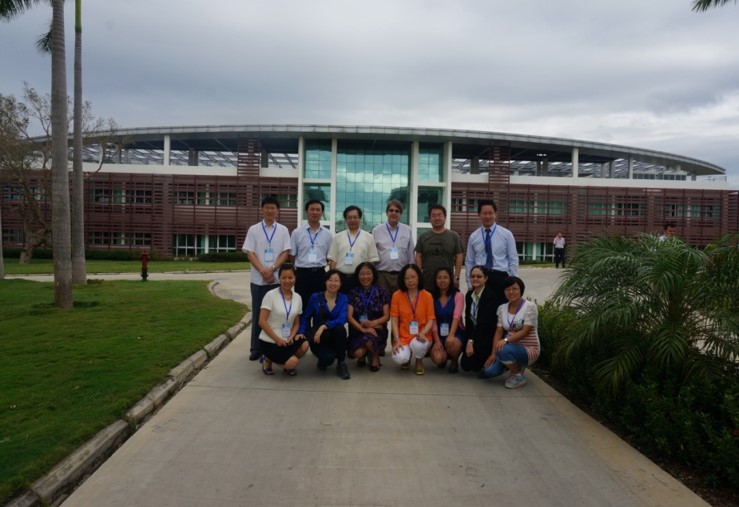LODGD – Past Achievements
Achievement 2017
a summary of recent TG activity involving Dr Bapon Fakhruddin and Professor Virginia Murray is available on the CODATA blog here (https://codata.org/blog/2017/10/04/summary-of-linked-open-data-for-global-disaster-risk-research-activity-involving-dr-bapon-fakhruddin-and-professor-virginia-murray/)
Achievements 2016
- LODGD white paper meeting, in Beijing, China, at 18-19 January, 2016
Thanks to financial support from CODATA-China and RADI, a number of LODGD Task group members participated in the meeting. The main task of the meeting was to review the LODGD White Paper “Gap Analysis on Linking Open Data for Global Disaster Risk Research” and to kick-off the second white paper entitled “Next Generation Disaster Data Infrastructure”. The meeting achieved great success including the suggestions and modifications needed to improve the first white paper. Also the working model, structure and timeline for the “Next Generation Disaster Data Infrastructure” White Paper was determined. - UNISDR Conference in Geneva, Switzerland, 27-29 January 2016. As representative of LODGD, Masaru Yarime participated this meeting and communicate with other communities.
- LODGD jointed session on GEOSS Data Services along Belt and Road Area at the EOBAR conference, 16-17 of May in Beijing. Li Guoqing servced as the chair and more than 8 reports were presented, including from Ms. Barbara Ryan, the Director of the GEO Secretariat.
- Meeting with Carol and Li Guoqing, 12 of June in Beijing, to discuss the renewal of the Task Group, as well as the preparation of activities at International Data Week in Denver in September 2016.
- Li Guoqing gave a lecture on understanding data science at the CODATA International Training Workshop in Big Data for Science, Beijing, on 11 July.
- The LODGD Task Group helped organise a research paper session with the title of Disasters and Disasters Risk Data during SciDataCon 2016, on 13 September in Denver, Colorado. The session included four papers from the LODGD team (presenters given below):
- Carol Song et al, Gap Analysis on Open Data Interconnectivity for Global Disaster Risk Research
- Masaru Yarime, Providing Incentives to Data Sharing and Integration for Disaster Risk Reduction: Implications for Institutional Design and Public Policy
- Virginia Murray et al., Utilization of Global and Historical Data for Pre-Impact Risk Assessment
- Virginia Murray et al., The Disaster Loss Data (DATA) project of Integrated Research on Disaster Risk (IRDR)
- Li Guoqing will give lecture on disaster data link and DDI in training course of CAS-TWAS CAS, in December 2016, in Sanya, China.
Achievements 2015
Second Phase Kick-Off Meeting
The kick-off meeting for the second phase of the LODGD Task Group was held on 27th April 2015 with the participation of more than ten young scientists. Dr. Li Guoqing gave a brief introduction of the second phase tasks, then Hongyue Zhang reviewed the achievement of the first phase. Finally, Carol Song gave a report on progress of the White Paper.
All the members showed a great interest in this event and approved the workplan for the second phase. Among the achievements of the meeting was that several notable international experts joined the Task Group. Brenda K. Jones, Professors Murata and Yarime will bring their insights to the Task Group’s work in its second phase.
The presentations from the kick-off meeting are available from Zenodo: Li, Guoqing and Zhang, Hongyue. (2015). Presentations: Progress and Next Steps for the CODATA Task Group on Linked Open Data for Global Disaster Risk Research.
DOI: http://dx.doi.org/10.5281/zenodo.20686
- Zhang Hongyue, Summary of the First Phase Activities of the CODATA Task Group on Linked Open Data for Global Disaster Risk Research
- Li Guoqing, Workplan for the Second Phase of the CODATA Task Group on Linked Open Data for Global Disaster Risk Research
Article ‘A Correlation Analysis Model for Multidisciplinary Data in Disaster Research’ in the Data Science Journal
 Abstract: Data play an important role in disaster mitigation applications, and the integrated employment of multidisciplinary data promotes the development of disaster science. Therefore it is very useful to identify the multidisciplinary data usage in the research of disaster events. In order to discover the correlation between multidisciplinary data and disaster research, three earthquake events, the Tangshan earthquake, the Wenchuan earthquake, and the Haidi earthquake were selected as typical study cases for this paper. A knowledge model for literature data mining was applied to analyze the correlation between earthquake events and multidisciplinary data types. The results indicate that high-cited papers show different data usage trends when compared with whole-set papers and also that data usage for the three earthquake events varies. According to analysis results, the factors that influence multidisciplinary data usage include the characteristics of spatial and temporal elements as well as differing interests of the data users.
Abstract: Data play an important role in disaster mitigation applications, and the integrated employment of multidisciplinary data promotes the development of disaster science. Therefore it is very useful to identify the multidisciplinary data usage in the research of disaster events. In order to discover the correlation between multidisciplinary data and disaster research, three earthquake events, the Tangshan earthquake, the Wenchuan earthquake, and the Haidi earthquake were selected as typical study cases for this paper. A knowledge model for literature data mining was applied to analyze the correlation between earthquake events and multidisciplinary data types. The results indicate that high-cited papers show different data usage trends when compared with whole-set papers and also that data usage for the three earthquake events varies. According to analysis results, the factors that influence multidisciplinary data usage include the characteristics of spatial and temporal elements as well as differing interests of the data users.
Citation: Zhang, H., Qing, X., Huang, M., & Li, G.. (2015). A Correlation Analysis Model for Multidisciplinary Data in Disaster Research. Data Science Journal, 14(0), 19. DOI: http://doi.org/10.5334/dsj-2015-019
Achievements 2013-14
Draft White Paper on Distributed Disaster Datasets
The White Paper is intended to provide an authoriative assessment of the current state of integrative utilization of distributed disaster datasets, document both technical and policy requirements for such usage, as well as challenges and potential implementations. 
The preparatory work on the White Paper was initiated in 2013, through a series of workshops to gather expert input, define the scope of work and encourage community involvement. As a result of these meetings, the White Paper Team was established, comprising fourteen active members, chaired by Dr. Carol Song, from Purdue University, and assisted by Miss Zhang Hongyue, as secretary. An outline was drafted and discussed at the WPT meeting held at the RADI Campus in Sanya in October 2013. Following this meeting, work was then continued collaboratively, supported by teleconferences.

A full draft of the White Paper was completed towards the end of 2014 and initial expert review was provided by Susan Cutter, Brenda K. Jones and Michael Rast. Following a cycle of revisions and broader expert input, it is intended that the final White Paper will be released later in 2015 and will provide the foundation for the second phase (2014-2016), in which the Task Group will organize a series of workshops to engage with the wider community, including users of linked data and data providers, to gather feedback on the White Paper and to improve our understanding, and collectively work towards a common framework for seamlessly managing and utilizing the linked disaster related datasets.
